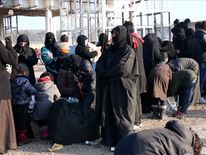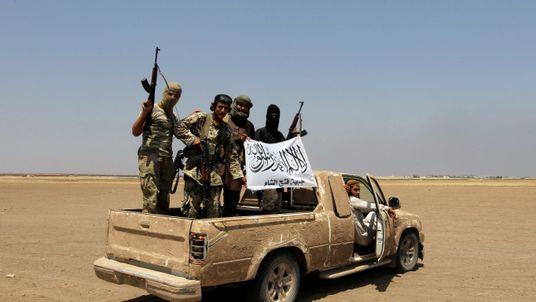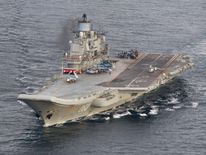A classified document, seen by Sky News, says Syrian government forces have "ethnically cleansed swathes of Syria" with help from their partners Russia and Iran.
The grim assessment brings into question the fragile ceasefire in place and raises the possibility that Turkey, a NATO country, could be drawn further into the conflict.
"I think the concern is justified," said Charles Lister, an expert on Syria for the Middle East Institute in Washington.
"The regime has had a pretty clear strategy backed up by its international supporters to displace it opponents into specific areas, and in particular Idlib.
"We should expect, if this currently existing ceasefire erodes, we should expect a pretty significant regime attempt to take back that east Ghouta area. Idlib will come later, it's a much more significant operation for the regime."
An estimated two million civilians and oppositionists are now "kettled" in Idlib. A further 450,000 are trapped in the enclave of East Ghouta.
The Syrian regime, with the support of Russia and Iran, is expected to heavily bomb these areas if they meet any resistance, resulting in a massacre if humanitarian corridors aren't opened.
Despite the publicised recall of the Admiral Kuznetsov aircraft carrier, Russia's military deployment in Syria is unlikely to reduce in the short-term. If anything it has increased.
It's thought Moscow has a force of around 5,000 in Syria to cement recent gains.
Iran is also expected to retain its presence, with at least 15,000 militia fighting on behalf of President Assad's regime.
This week a new round of peace talks were held in Astana, Kazakhstan. Russia, Iran and Turkey agreed to monitor the ceasefire, but aid workers have told Sky News that bombing continues.
"We had an airstrike yesterday. It was nearby us, so the airstrikes they haven't stopped," said Mohammed, an aid worker in Idlib Province.
"We moved but the airstrikes are continuing. We feel the war continues. We don't have a safe place here in Syria.
"The future is bad. We have a ceasefire but in fact we don't have ceasefire, just on paper. Everything is continuing."
Conditions in Idlib are already horrendous, with hundreds of thousands living in refugee camps.
Mohammed lived and work in eastern Aleppo during the siege before moving to Idlib. He works for the charity Syria Relief, which is a partner of Save the Children - and says there is no escape.
"When people left Aleppo they left without anything. They got to the buses and went to Idlib and other places. They don't have clothes, they don't have enough money, they don't have food, so their situation is very bad," Mohammed said.
Russia's 16-month involvement in the Syrian civil war has significantly altered the balance of power and the fall of Aleppo was a seminal moment in the conflict.
It put the Syrian regime in its strongest position for five years, and yet Mr Assad remains structurally weak because of his dependency on a coalition of supporters, including Russia, Iran and Hezbollah.
The United Nations has welcomed the progress made in Astana, but remains wary of the situation.
UN spokesman Trond Jensen said: "I think the current ceasefire has given people, civilians, a bit of a respite from attacks and that is a very positive thing.
"In the last month, with the evacuation of eastern Aleppo, we saw an additional 16,000 civilians moving into Idlib.
"Of course what we are very concerned about is that if the current peace talks do not bear fruit and if there was a ground conflict in an area like Idlib, then a large group of internally displaced people are extremely vulnerable."







No comments:
Post a Comment